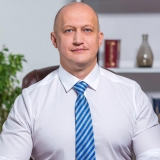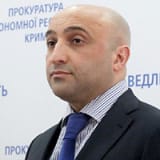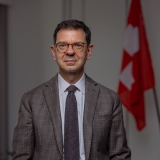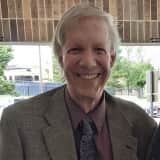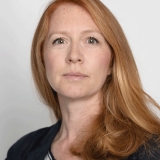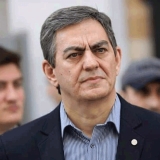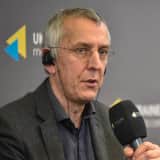Ethics Council, War and Judicial Reform – Why It Is Important Not to Stop
The Ethics Council held its first session on 1 December 2021. Back then each of us – six members of the Council – was aware of the scope of responsibility and challenges awaiting us. However, no one could even imagine that the main challenge facing the entire country would emerge at the end of February in addition to everything else, i.e. the war with the russian aggressor.
Awareness of the significance of the reform of the judiciary for Ukraine’s European path, unity, and professionalism within the team have allowed us to continue working and get the first important results. Despite daily threats due to hostilities, the Ethics Council has not suspended its activities and has carried out the one-time evaluation of compliance of the sitting members of the HCJ with the criteria of professional ethics and integrity, as well as evaluating candidates to the HCJ as nominated by the Verkhovna Rada of Ukraine and the Congress of Representatives of Legal Higher Educational Institutions and Research Institutions. This is an important step in the reform of the main body of judicial governance in the country.
How does the Ethics Council work?
In order to be able to understand the intermediate result, it is important to point out that the Law has assigned two main tasks to the Ethics Council since the moment of the latter’s establishment:
- to conduct a one-time evaluation of compliance of the sitting members of the High Council of Justice with the criteria of professional ethics and integrity;
- to carry out evaluation of candidates for the position of the HCJ member and provide respective recommendations to entities appointing them.
Each of these directions is accompanied with a huge amount of important work, most of which is invisible to the society. Analysis of a large amount of information, drafting of requests and questions, and immaculate compliance with all provisions and procedures stipulated by the law require from all members of the Ethics Council and the entire Secretariat team to ensure maximum concentration and attention to detail. We have collected, verified, and analyzed information received from all entities and sources set out by the Ethics Council’s Rules of Procedure about candidates and sitting members of the HCJ, and we continue doing that. Such information includes both confidential personal data received from public authorities and local self-governance bodies and information from civil society organizations actively involved into the process of the judicial reform implementation.
It is undeniable that the war has caused respective adjustments in the process of our work. On 23 February we still conducted in-person interviews with candidates for the position of the member of the High Council of Justice in the premises of the Supreme Court with an online broadcast at official accounts of the Ethics Council in social media. However, once the full-scale russian invasion started, the Ethics Council adopted a decision to conduct interviews via videoconferences with corresponding amendments being introduced into the Rules of Procedure. Besides, the Ethics Council has decided not to broadcast interviews live. There is only one reason for that, and this is martial law in Ukraine. The Ethics Council follows the principles of openness and transparency in its activities. Such transparency starts precisely from interviews with candidates, in particular, a possibility for them to be as frank as possible and not to be afraid to provide any sort of information by answering questions asked by the Ethics Council members. Our task has consisted in ensuring that the enemy could not use information which was made public and that it did not pose threats to safety of the HCJ members, candidates for the position of the HCJ member, and their families. Absolutely all recordings of interviews conducted by the Ethics Council will be published once the security situation in the country returns to normal.
Another important aspect of the "inner workings" of the Ethics Council concerns interaction and coordination, in particular, among persons adopting decisions, i.e. the six members of the Ethics Council. We have managed at once to destroy all skeptical doubts (which had emerged long before we started working) regarding possible effective cooperation between Ukrainian and international members of the Council. All members of the Ethics Council now work as a single mechanism. We always manage to reach a consolidated position during discussions and deliberations. This has been possible primarily thanks to an extremely high level of professionalism and experience of all members of the EC.
What about sitting members of the HCJ?
Since the start of the Ethics Council’s work, 70% of sitting members of the High Council of Justice has already left. In February of this year, twelve of the then sitting members of the HCJ resigned before the expiration of the terms of their authorities, thereby actually avoiding evaluation by the Ethics Council.
Therefore, the Ethics Council was obliged to check compliance of four sitting members of the HCJ. This task is now completed – after thorough analysis of information from open sources, as well as other materials and the interview the Ethics Council has recognized Viktor Hryshchuk as non-compliant with the criteria of professional ethics and integrity due to his non-compliance with such indicators as honesty, impartiality, compliance with ethical standards and demonstration of immaculate conduct in professional activities. Pursuant to results of the Ethics Council’s evaluation, three other sitting members of the HCJ, including Oksana Blazhivska, Vitalii Salikhov, and Inna Plakhtii, comply with the criteria of professional ethics and integrity.
What is the current situation regarding candidates for the position of HCJ member?
Back in late January the EC processed 38 packages of documents of candidates for the position of a member of the HCJ. 34 candidates were admitted to the interview: two voluntarily terminated their participation in the competition, and two others were denied admission. All candidates were nominated for the position of the member of the High Council of Justice by different institutions, including the Verkhovna Rada of Ukraine, Congress of Representatives of Legal Higher Educational Institutions and Research Institutions, and Congress of Judges of Ukraine. The Ethics Council has already finished interviewing all of them and has submitted recommendations on appointment to three vacant positions in the High Council of Justice.
A thorough study of professional experience and background shows that the majority of candidates fail to pass the check in terms of their compliance with the high level of integrity which the HCJ member shall meet. Hence, only 4 candidates out of 12 nominated by the Verkhovna Rada of Ukraine have been recognized as compliant by the Ethics Council: Roman Maselko, Mykola Moroz, Olena Zaichko, and Viacheslav Talko. The other 8 candidates did not comply with the criteria of professional ethics and integrity for various reasons: lack of correspondence between the lifestyle and declared and legal income, non-compliance with such indicator as compliance with professional ethical standards, lack of diligence, etc. See arguments of the Ethics Council in more detail in full texts of corresponding decisions.
Results regarding candidates nominated by the Congress of Representatives of Legal Higher Educational Institutions and Research Institutions may be described as 50/50. 4 out of 8 candidates for the position of the HCJ member have been recognized as compliant: Mykola Khavroniuk, Serhii Melenko, Oleksii Horokh, and Dmytro Lukianov. The other four candidates have been recognized as non-compliant with the criteria of professional ethics and integrity to be selected to the position of the HCJ member pursuant to results of the evaluation carried out by the Ethics Council.
The Ethics Council has also finished interviews with 12 candidates who have been nominated by the Congress of Judges of Ukraine and who applied for the competition for the position of the HCJ member last year. Decisions regarding these candidates will be adopted shortly.
It should also be emphasized that while assessing all candidates for the position of the HCJ member we are guided by the principle of a "reasonable doubt". In other words, negative decisions of the Ethics Council do not mean that a candidate is acknowledged as dishonest in general. It only means that the Council has reasonable doubts about the candidate’s compliance with the criteria of professional ethics and integrity specifically in the context of their potential appointment to the position of the member of the High Council of Justice.
What is next?
Currently, the main task of the Ethics Council is to carry out the check of 46 new candidates for the position of the HCJ member nominated by the Congress of Judges of Ukraine.
Our work is neither about a captivating picture, nor some instant result. It is about professionalism and in-depth analytics, systematic work mostly related to routine tasks, and there is not always room for excessive publicity. However, this is the only way to achieve the result which is highly expected from us by the society.
The Ethics Council has already demonstrated its capacity to take well-reasoned decisions without any external influence or populism. We assure you that we are going to finish what we have started.
Lev Kyshakevych – Chair of the Ethics Council
Sir Anthony Hooper – Deputy Chair of the Ethics Council
